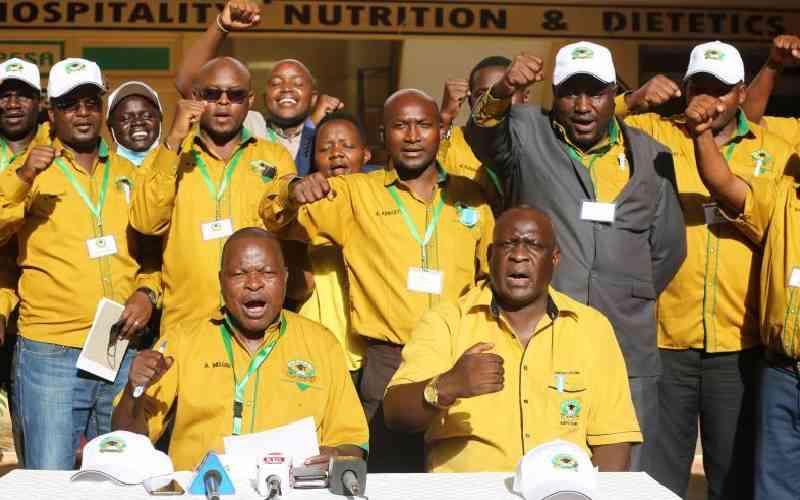Kuppet and Uasu leaders face backlash over attempts to alter constitutions to extend their stay in power, raising concerns about democracy in Kenya’s trade unions.
The ongoing court battles within Kuppet and Uasu have reignited debate on the state of democracy in Kenya’s trade unions. At the center of the controversy are attempts by top officials to push through constitutional changes aimed at extending their tenure.
In Kuppet, Secretary-General Akello Misori sought to remove the age limit for union leaders, arguing it would allow experienced officials to continue serving. Critics, however, see it as a ploy to cling to office beyond the retirement age of 60, even as ordinary teachers are forced to retire. Uasu Secretary-General Dr. Constantine Wasonga faced similar criticism after attempting to scrap the two-term limit, despite already serving two terms.
The Employment and Labour Relations Court intervened, halting the amendments. The Registrar of Trade Unions later directed that the 2026 elections must proceed under old constitutions, effectively barring Misori and Wasonga from defending their seats.
Union members like Sabala Inyeni and Robert Miano accuse leaders of fraud, alleging fake minutes were presented to justify constitutional changes. They argue the amendments undermine fairness and misrepresent the interests of younger teachers and lecturers.
This crisis reflects a wider trend of union bosses adopting political-style maneuvers to extend their stay in power, raising fears of weakened accountability and misrepresentation in Kenya’s labor movement.





